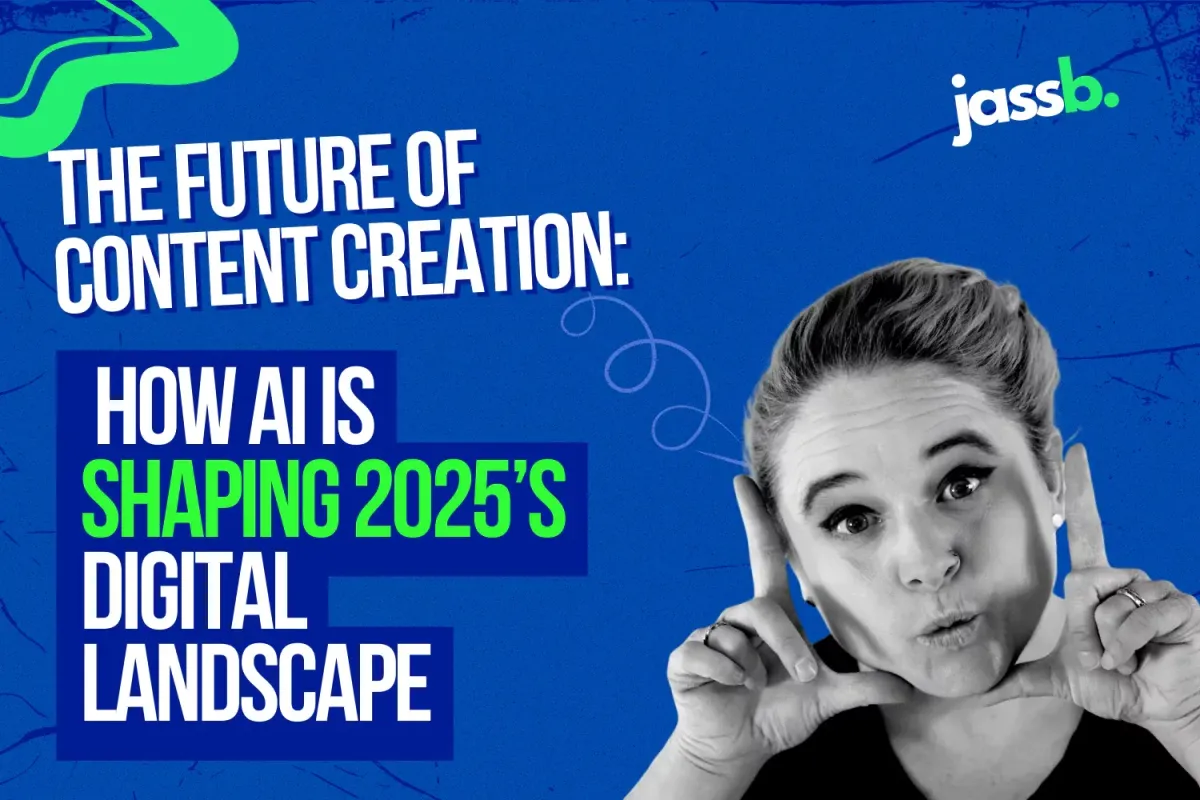
AI's Impact on Content Creation in 2025
AI's Impact on Content Creation in 2025
With AI leading the way, content creation is changing. By 2025, AI will transform the creative process rather than just enhance productivity. AI will transform content creation, personalization, and consumption from ideation to dissemination. This essay examines how businesses and creators may use AI to stay ahead in content development.
Content Generation with AI
The employment of AI tools to swiftly and efficiently create content is a major change. AI platforms like GPT-4, Jasper AI, and Copy.ai are changing copywriting, blogging, and marketing. These tools let users create high-quality articles, social media posts, product descriptions, and long-form material in a fraction of the time.
GPT-4 and other algorithms can grasp context and generate interesting, on-brand copy. This revolutionizes content teams who must produce big amounts of content constantly. Marketers can scale content creation quickly without sacrificing quality by using AI technologies to write interesting storylines, ads, and blog articles.AI may also adjust content tone, style, and structure to suit multiple platforms, ensuring it resonates with each audience. AI can quickly produce diversified, high-quality content, making it an invaluable asset for firms seeking a consistent, active digital presence.
Personalization by AI
Personalization is another AI-driven content production innovation. AI systems can evaluate large volumes of user data, including behavior patterns, search history, and interactions with content, to design personalized experiences that profoundly resonate with individual tastes.
AI can target specific user groups with emails, ads, and social media postings, increasing engagement. AI can forecast what material users will like by monitoring patterns and preferences, helping businesses provide relevant content. This level of customisation displays a greater awareness of customer demands, strengthening links between organizations and their customers.
AI-powered personalization technologies can also assist marketers and content makers target certain populations and adapt their messaging to cultural, regional, and behavioral differences. Companies can deliver relevant, engaging content to stay top-of-mind with their audiences.
Automating SEO
SEO has long been essential to content creation. As AI advances, SEO becomes more automated and data-driven. In 2025, AI-driven SEO solutions like Surfer SEO, Clearscope, and MarketMuse will help optimize content for rankings. These tools assist writers find trending keywords, assess rivals' material, and optimize for search engines.
AI systems examine massive ranking data and offer real-time content improvements. Surfer SEO can suggest keyword density modifications, article structure tweaks, and relevant internal and external links to improve SEO ranks. This frees content creators from intuition and manual research to optimize their content. AI can scan and adapt information to changing search algorithms.
Creators must adapt to be competitive as search engines like Google improve their ranking systems using AI. SEO automation in 2025 will include keyword optimization and content writing that matches AI-driven algorithms' user intent and engagement.
AI Content Creation Ethics
As AI gets more integrated into content creation, ethical issues arise. One of the biggest issues is uniqueness. While AI can generate content quickly and efficiently, it raises the question of whether AI-generated content is truly original or merely a synthesis of existing ideas. This threatens authorship and intellectual property because AI-generated work is typically based on datasets with existing works.
Furthermore, AI-generated content can occasionally blur the borders between human creativity and machine production. AI techniques are trained on enormous databases of existing content, therefore their output may be derivative. AI technologies may endanger writing, journalism, and marketing jobs, raising concerns about creative careers.
Another priority is transparency. How do firms inform customers that AI creates content? In some cases, audiences may feel misled if they believe that content is coming from a human source when, in reality, it has been generated by a machine. Businesses must be upfront about using AI in content development as AI advances.
Conclusion
AI will continue to drive content creation in 2025, allowing businesses and producers to scale high-quality, tailored content. Quickly creating, personalizing, and optimizing content for search engines will help businesses engage with customers and stay competitive in a continually changing digital market.
AI will revolutionize content creation, thus ethical issues like originality, authorship, and transparency must be addressed. AI can boost efficiency and creativity, but human intelligence will be needed to make content that resonates with audiences and meets their values. The future of content creation in 2025 will blend AI capability with the irreplaceable human touch that makes content engaging and meaningful. Those who successfully navigate this balance will be best positioned to thrive in the next era of digital content.
